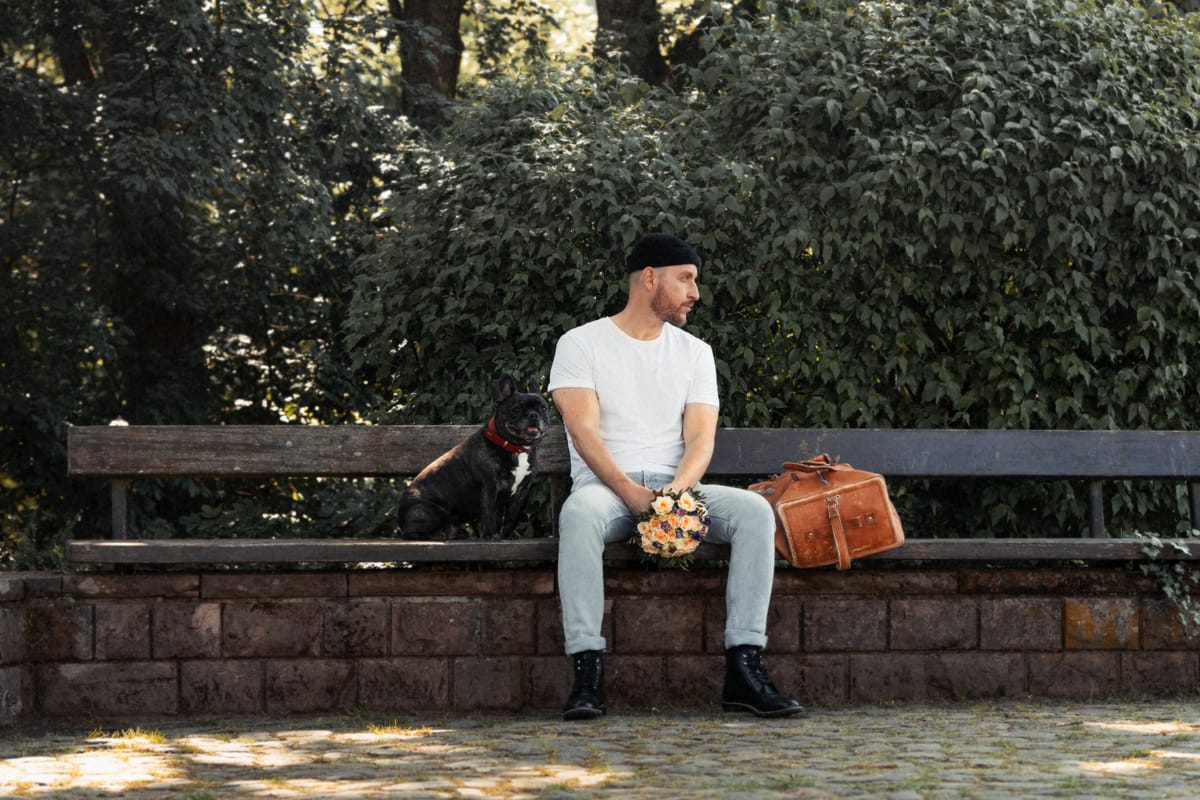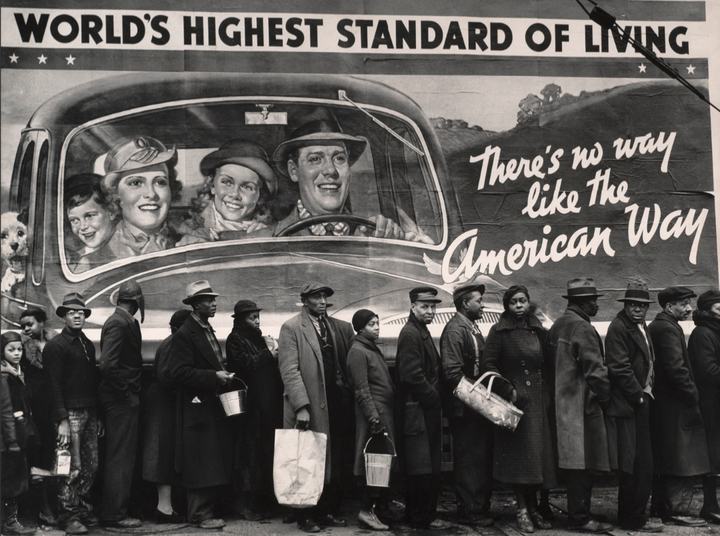After a ten year break, the German rapper David Asphalt is due to release a new album within 2024. He spoke to Interregnum about music, capitalism, and revolution.
by Johannes de Haas
David Asphalt is from Kaiserslautern and has been a voice to be heard in the German rap scene for over 20 years now. Politics have always been a part of his music - and it has always been against reactionary voices and fascism. His new album "Leben und Sterben im Hotel" ["Living and Dying in an Hotel"] will be released in early March. Interregnum caught up with him to discuss his music, capitalism, and his hopes for the future.
Interregnum: You have been making music for a long time now. The first tape that you appeared on was released in 2001 together with the group Asphaltliteraten. After multiple solo records you stayed quiet for ten years. Why did you decide to do a new album now?
David Asphalt: I never wanted to stop making music. But I did have to earn a living somehow, so I started a business, and then another. But soon I was stuck in the rat race because I had to give up so much of my time to run the businesses.
IR: And was that enough for you?
DA: Not at all. During the time when I was working so much, I came to the conclusion that work was really not my dream. On top of that, I began to realize how much I was missing from life, things like writing and making music. That’s when I scaled back so that I would have more time for what is important to me.
IR: Other than music, what is important?
DA: Well, my daughter was born. I don’t want to be the kind of father who makes money, but only sees his kid on Sundays. Like I said – I spent less time with my businesses and then I started to write again, to bring my thoughts down on paper. For me, rap is the perfect medium, because there is almost always an audience there that will listen to what you have to say.
IR: And then you wanted to release a new album?
DA: It just happened that I met a few people who offered to produce and record me. And so the album quickly started to take form.
IR: Would you say that the capitalist reality we are living in right now destroys the creativity of artists?
DA: I would go so far as to say that those pressures destroy the creativity in every person. Capitalism is the number one killer of creativity. You can see that even if you just look at the development of people. When you are a child, or later in your youth and even as a young adult, you tend to spend much more time on your hobbies. You still have time to live out your creativity.
IR: And that changes when you enter the professional world?
DA: On the one hand things change professionally, but at some point things also change in terms of family. You are confronted with new challenges and obligations, and then soon you realize that you have to make a choice between being creative and making money; unfortunately, that often means having to leave your creativity behind. The years go by and then suddenly you are in your mid-30s, then your mid-40s, then your mid-50s. And then you realize that you have become just another cog and that there is hardly anything left of the creative person you once were.
IR: On the first singles of the upcoming album “Leben und Sterben im Hotel” you touch upon explicitly political subjects. “Eine Polizistin” criticizes state power, and “Das beste Deutschland aller Zeiten” deals with the current situation of German politics. Did your music become more political over time, or has this always been a topic for you?
DA: Essentially the Asphaltliteraten were always a deeply political project. For example, when Edmund Stoiber announced his candidacy for the CDU/CSU [the dominant right-wing coalition of Germany] for the Bundestag in 2002, we recorded the song “Kein Kreuz für Stoiber”. We played in leftist youth centres, were never shy about stating our opinions and were resolutely against the right-wing.
IR: Where did this aspect of your music come from would you say?
DA: I think that has a lot to do with my background. I was born in the German Democratic Republic. So I was a communist from a very early age on – and that has not changed to this day. I still have a very deep distrust of officials, the police, the state, and generally this system of power.
IR: Why did you choose hip-hop as your way of expressing yourself politically?
DA: To my mind, rap is the perfect medium in order to deal the circumstances that are happening around us, while at the same time allowing to scream them back in the faces of anyone who will listen. Say I am opposed to something: I can write that down, go to the studio the next day and record, and then three days or so later everything is mixed and mastered. Theoretically this means that I am able to upload a new song within seven to ten days to all streaming platforms. That sort of thing makes rap extremely up-to-date.
IR: But not everyone uses rap in such a way.
DA: I find that sort of thing extremely lame. It makes me angry to see successful rappers such as Luciano or Capital Bra get sucked into Bubblegum-Rap. They propagate consumerism rather than questioning it. But at the same time, I am very aware of the fact that not everybody thinks along the same lines as I do. I have long since come to terms with that. That is also why I do not feel the need to reproach Bubblegum-Rappers for their pointless lyrics.
IR: Do you believe that music has a potential for agitation?
DA: In general rap does offer a potential to mobilize people. But you still move mostly within your own bubble. I know that the people who listen to my music tend to be leftists themselves. Besides that, not everybody is touched by music in the same way.
IR: How do you mean?
DA: There are a lot of people who simply do not listen to music as actively. That is why trivial pop songs can be so successful on the radio. But more often than not, in order to be successful, artists cannot be critical. Successful music hardly touches upon anything critical.
IR: Well that isn’t entirely true. Disarstar for example is a critical rapper who is signed to a major label. He is successful. Doesn’t that weaken your argument?
DA: Well, for every Disarstar there are 20 Lucianos. Of course it is wonderful that he made it – but in general critical songs are simply not pushed as hard as small, trivial songs.
IR: Have you ever experienced someone not reacting well to your music in that sense?
DA: Yes. There is a big radio group that I used to work with a little while back. They took up multiple songs from my Electropop project “Kids mit Knarren” without batting an eye. And so I figured I would send them my new single “Eine Polizistin”. However, in this case the program head suddenly said that the song is much too political. And besides, anyone who says anything against the police is nothing but ungrateful to live in such a wonderful state. I did not know what to say to that. I was angry because I feel like all problems should always be addressed.
IR: In other countries there has been much more hard hitting repression against artists who are critical. The Spanish rapper Pablo Hasel was put in jail for criticising the government and the king. Can music be dangerous for an authoritarian state?
DA: Music is the perfect medium to shake up people and maybe even call for revolution. The question is whether or not that is enough in the long run. Personally I am fairly pessimistic in that regard. People are far too stuck in their own small, little, exhausting worlds. It feels like nobody has the courage to tell their boss that they need a four Euro raise in order to retain some standard of living. It’s much easier to be quiet – to a lot of people having a shit job is better than having no job at all.
IR: Your song “Meine Strahlenpistole” includes the line: “Ich hoffe und bete für die Revolution.” [EN→ I hope and pray for the revolution] Do you have a particular utopian ideal for the time after the fall of capitalism?
DA: Currently I am not very hopeful. I do believe that we will live in a very bad world in around 100 years. What we would have to do is manage to defeat the internalised materialism within people. We are currently living far beyond our means, and even though it would be possible to provide for everyone, we do not. Our system is running full speed towards towards the abyss. That is something that anyone who is class-conscious and can gauge the current situation can see.
IR: Let us finish our conversation on a lighter note: your album is coming out next year. What are your hopes for the release?
DA: Art is not something that I do because I have specific wishes. I write down a lot of the things that go through my mind. That is something that I want to share with the world. It is only after that that I think about whether or not other people will like my output. First and foremost, I make my music the way I want it to be. If other people like what I put out, then that is a wonderful side-effect.
IR: Would you ever adapt your music in order to reach a broader audience?
DA: Nooo! I never want to water down my thoughts or try to have greater pop appeal just so that I can reach more people. I make music because that is a part of me. And because I can.
Support David Asphalt on Spotify to stay up to date on the release of his new album.
Johannes de Haas is a German journalist. He has written for multiple large German publications and is focused mainly on international crisis reporting –also has a soft spot for Rap and Hardcore Punk.






Comments ()